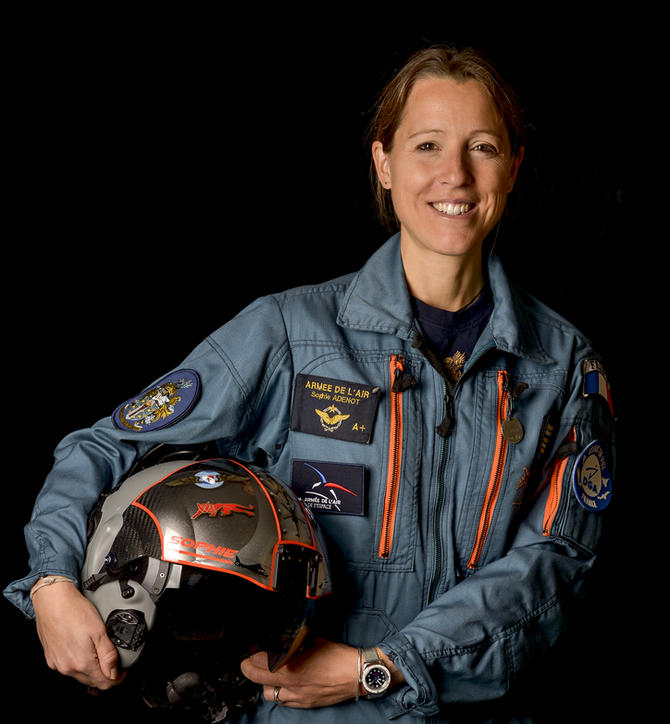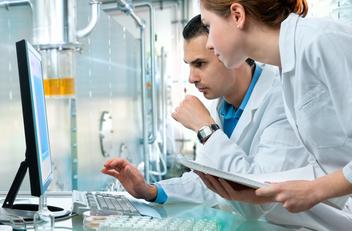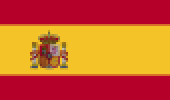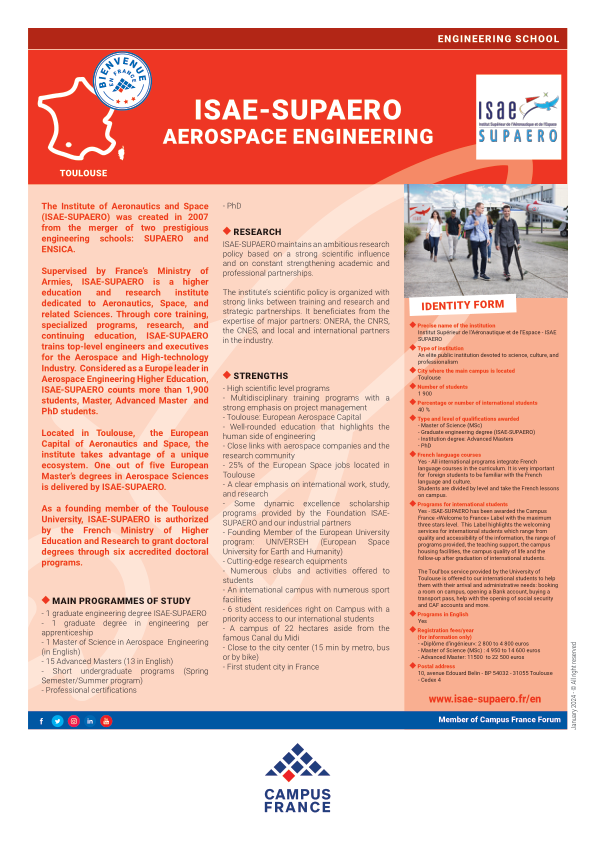
Space Agency: Sophie Adenot, new French astronaut
The European Space Agency (ESA) has just announced that French astronaut Sophie Adenot is now part of the new cohort of European astronauts. This engineer and pilot became the second French female astronaut in history, after Claudie Haigneré. On the occasion of this announcement, the French Government decided to increase its contribution to the European program in order to strengthen Europe’s autonomy in the space sector and in particular to ensure better monitoring of climate change.
L’ESA, agence européenne, est dédiée à l’exploration et à l’utilisation pacifiques de l’espace au service de tous. Créée en 1975, l’agence fédère aujourd’hui 22 États membres et assure "la promotion des intérêts scientifiques et industriels européens dans l’espace".
Une astronaute française au parcours international
C’est parmi 22 500 candidatures venues de toute l'Europe et après un long processus de sélection que Sophie Adenot a été nommée astronaute française de l'ESA, le 23 novembre dernier. En la désignant, avec 16 autres membres formant la nouvelle promotion d’astronautes européens, le directeur général de l’ESA a souligné que cette nouvelle génération "réunit l’ambition, le talent et la diversité sous toutes ses formes", nécessaires pour poursuivre des "activités d’exploration en orbite terrestre basse à bord de la Station spatiale internationale", mais aussi pour "aller jusqu’à la Lune et plus loin encore".
Sophie Adenot est en effet ingénieure dans l’aérospatial, lieutenant-colonel de l'Armée de l'air et de l'espace, pilote d'hélicoptère et pilote d'essai. Entre 2001 et 2003, elle suit des études d’ingénieur à l’ISAE-SUPAERO (Toulouse) où elle se spécialise dans la mécanique du vol aérospatial. Elle poursuit sa formation au MIT (Massachusetts Institute of Technology) où elle obtient un master en science des facteurs humains aéronautiques et spatiaux et un doctorat portant sur "l’adaptation du système vestibulaire à la gravité artificielle". Plus tard, Sophie Adenot a intégré l’Armée de l’air et a suivi un cursus militaire d’élève-officier ainsi qu’une formation pour devenir pilote d’hélicoptère puis pilote d’essai. Elle a ainsi effectué plus de 3000 heures de vol et a également obtenu un brevet de parachutisme et de pilote d’avions légers. En plus du français, l’astronaute maîtrise l’anglais, parle aussi l’allemand et le russe et a des notions d’espagnol.
Une promotion éclectique
Sophie Adenot est ainsi la deuxième femme astronaute française. Elle succède à Claudie Haigneré, première spationaute française à voler à bord de la Station spatiale internationale (ISS) où elle réalise un programme expérimental dans les domaines de l'observation de la Terre, de l'étude des sciences de la vie ainsi que des sciences de la matière. Claudie Haigneré a également été ministre de la recherche puis ministre des affaires européennes au début des années 2000. Selon le Gouvernement français, la nomination d’une nouvelle astronaute femme "incarne un exemple pour le futur des femmes dans les milieux scientifiques et techniques, où elles sont encore sous représentées (moins d’un astronaute sur dix est une femme)".
Aujourd’hui, la promotion 2022 des astronautes de l’ESA comprend en tout cinq astronautes de carrière, onze astronautes réservistes ainsi qu’un un astronaute en situation de handicap physique. Les nouveaux candidats astronautes, précise l’ESA, seront basés au Centre des astronautes européens situé à Cologne en Allemagne. Ils y recevront "une formation très exigeante, conforme aux standards fixés par les partenaires internationaux de la Station spatiale internationale".
L’ESA a mis pour la première fois en place une réserve d’astronautes constituée de candidats qui ont réussi toutes les épreuves du parcours de sélection mais qui ne peuvent pas être recrutés dans l’immédiat. Ces "réservistes" bénéficieront d’une formation élémentaire et recevront une formation plus poussée si une occasion de vol est identifiée. Pour la France, le "réserviste" est Arnaud Prost, ingénieur et pilote de la DGA (Direction générale de l`armement).
Une contribution plus importante de la France à l’ESA
C’est dans ce contexte que le ministre de l’économie et la ministre de la recherche ont annoncé une contribution de la France en forte hausse, afin de renforcer l’autonomie de l’Europe dans le secteur spatial et d’assurer un meilleur suivi du changement climatique.
Les Etats membres de l’ESA ont en effet décidé d’un investissement européen global de 17 Mds €. La France engage quant à elle une contribution à l’Agence spatiale européenne de l’ordre de 3,25 Mds €, en hausse de plus de 20% par rapport à 2019. Dans ce cadre, la France a ciblé deux objectifs prioritaires :
-
renforcer l’autonomie européenne dans le secteur spatial, notamment en matière d’accès à l’espace, de télécommunications et de compétitivité du secteur spatial européen ;
-
améliorer la connaissance du changement climatique, avec un investissement particulier dans des programmes de recherche qui permettent d’améliorer "notre connaissance du changement climatique et d’anticiper ses effets".
Related contents
-
CollectionOCCITANIEUpdatedMay 2023
-
CollectionEngineering schoolsUpdatedJanuary 2024
- On the French government websitehttps://www.gouvernement.fr/actualite/lastronaute-francaise-sophie-adenot-bientot-en-orbite
- On the website of the French National Centre for Space Studies (CNES)https://cnes.fr/fr/sophie-adenot-nouvelle-astronaute-fran%C3%A7aise-de-l-ESA
- On the European Space Agency websitehttps://www.esa.int/Space_in_Member_States/France
Recommended News

























































